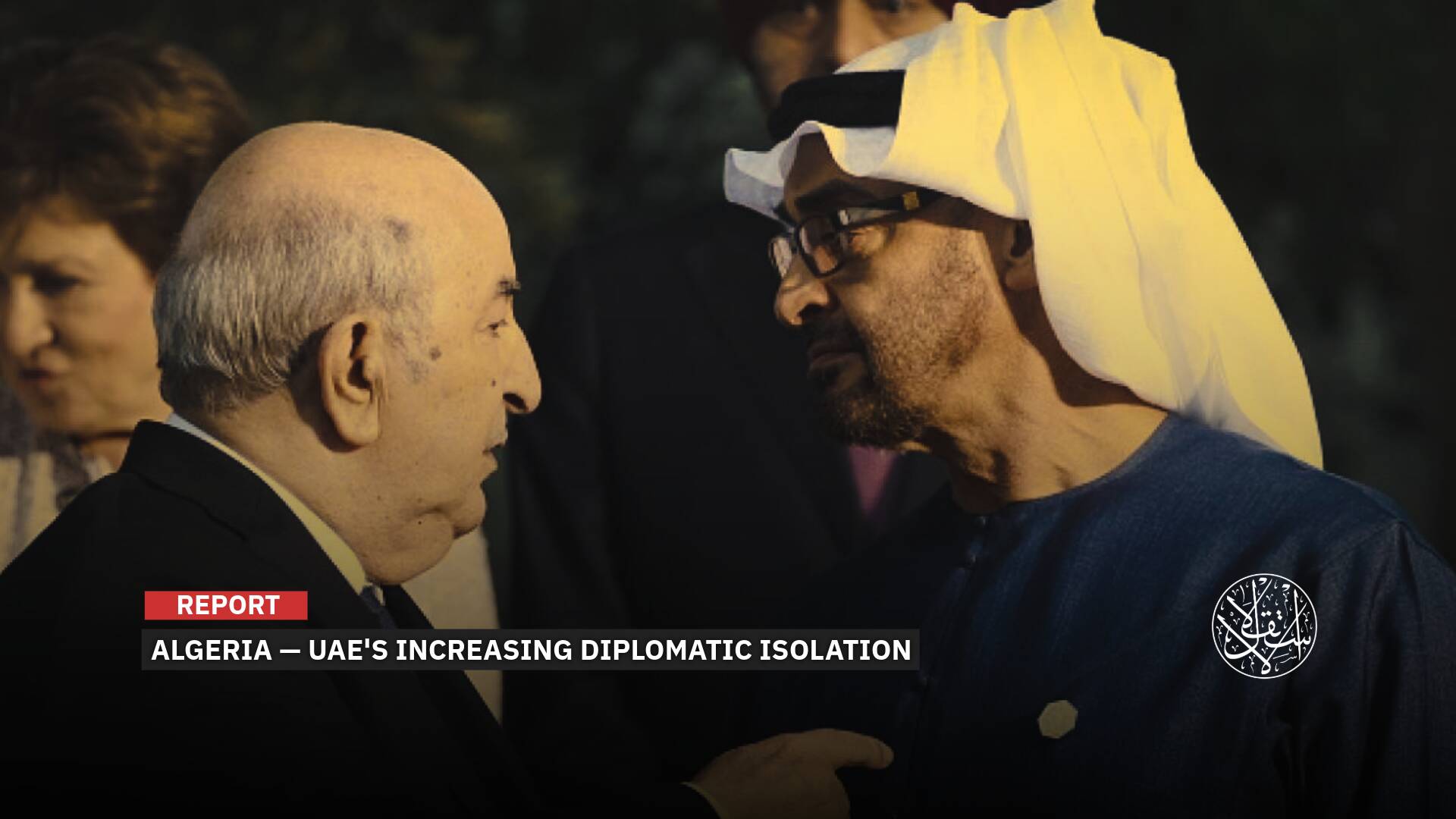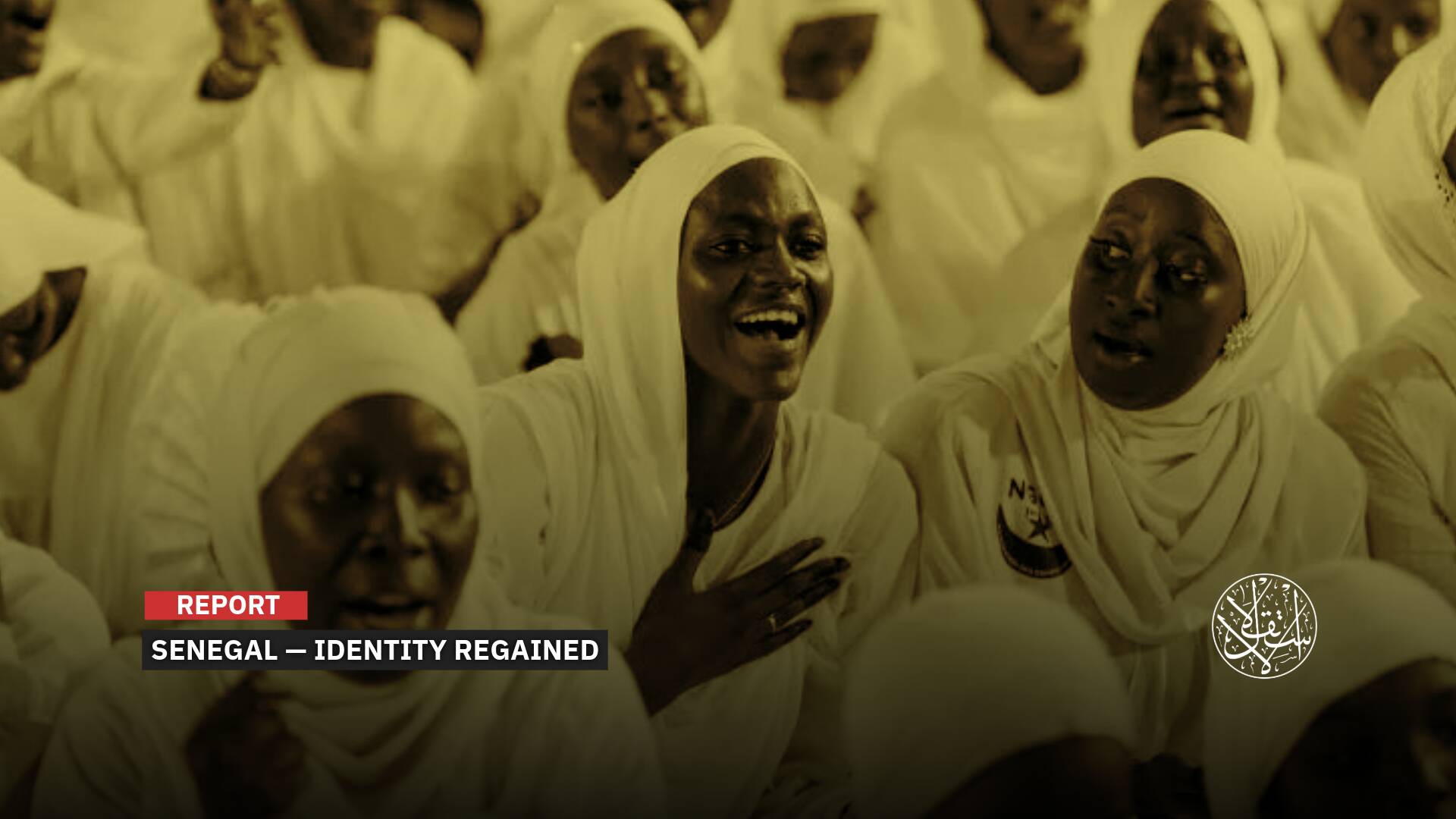Hunger Looms: How Displaced Syrians in Northwest Syria Struggle During Ramadan Due to Aid Shortages

The month of Ramadan in 2024 finds displaced individuals in northwestern Syria, areas outside the control of Bashar al-Assad's regime, facing a severe shortage in international funding, deepening the humanitarian suffering of civilians.
In recent months, warnings have intensified amid concerns about humanitarian organizations' inability to meet the minimum living requirements for civilians in northern Syria.
Lack of Funding
In the latest field indicators, the Syria Regional Humanitarian Response coordinators working in northwestern Syria as of early March 2024 reported the lowest number of relief trucks entering through border crossings in several months.
During February 2024, only forty-one international aid trucks entered through three border crossings with Turkiye (Bab al-Hawa, Bab al-Salameh, and al-Rai), compared to 456 trucks that entered through the same crossings in February 2023.
This marks a 91 percent decrease in the number of trucks between the two months over the span of two years.
The Syria Regional Humanitarian Response confirmed that poverty and hunger levels in northwestern Syria have reached unprecedented highs, with 5 million displaced individuals residing in the region.
They previously received international humanitarian aid through the Bab al-Hawa border crossing with Turkiye, which serves as their primary lifeline according to a UN Security Council decision.
Additional border crossings, namely Bab al-Salameh and al-Rai, were opened under UN authorization (until May 13, 2024) following a devastating earthquake that struck southern Turkiye and northern Syria on February 6, 2023, resulting in the deaths of 2172 individuals in opposition-held areas.
The Bab al-Hawa border crossing, located approximately 33 kilometers from Idlib city, facilitates the delivery of around 85 percent of the total humanitarian aid volume to Syria.
Unemployment rates within the local community in northwestern Syria have reached an average of 88.74 percent, according to the aforementioned organization.
Facing an increased humanitarian deficit and a growing number of beneficiaries in need of assistance, especially during the winter season, civilians in northwestern Syria are encountering significant difficulties in securing their basic needs in the region.
A UN delegation visited northwestern Syria via the Bab al-Hawa border crossing on March 7, 2024, led by David Carden, the Deputy Regional Humanitarian Coordinator for the United Nations, to assess the population's situation, understand their needs, and highlight the risks posed by the international funding shortfall for their projects.
Ziad Naboulsi, Director of the United Nations Population Fund in northwestern Syria, stated during the visit that they face numerous challenges, notably the funding shortfall, which hinders their ability to continue supporting humanitarian and development projects in the region.
He explained that the region's suffering has been exacerbated by successive crises, such as the 2023 earthquake and the COVID-19 pandemic, in addition to the painful economic crisis the country has been experiencing since 2011.
Nabulsi added, “We, as the United Nations Population Fund, find that about 40% of health centers providing health support to women are closing their doors, and also more than 30% of our social centers are forced to close due to insufficient funding. Therefore, funding is essential.”
Imminent Hunger
The World Food Program announced in early December 2023 that it would end its aid program across Syria by January 2024.
In July 2023, the World Food Program stated that it had been forced to cut aid to nearly half of the 5.5 million Syrians it supported in the country due to budget constraints.
Immediately, this was reflected in the livelihoods of the displaced, as per a statement from relief agencies and Syrian organizations released in early January 2024, where around 4.5 million individuals, including 4.1 million in dire need of assistance, with 3.7 million suffering from food insecurity.
The statement noted that the situation of civilians in northern Syria is worsening due to reductions in funding for food assistance provided by the World Food Program, exposing vulnerable Syrians to the imminent threat of hunger.
Residents of northern Syria suffer from repeated politicization of humanitarian aid delivery by the Assad regime and its ally Russia, which exert significant pressure on the freedom of aid within the UN Security Council.
Russia, which intervened in 2015 to save the Assad regime from collapse following a popular uprising that erupted in March 2011, continues to try to involve the Assad regime in aid delivery, a move rejected by the opposition and Western countries, fearing blackmail and the use of food as a weapon to force compliance with Assad and a return to his rule.
In the face of an unprecedented collapse in humanitarian conditions in northwestern Syria, with the onset of the month of Ramadan, the suffering becomes more apparent with families unable to afford adequate meals.
Syrian refugee Abu Mohammad from one of the displacement camps in the countryside of Idlib confirmed the absence of any food provisions for Ramadan due to the lack of purchasing power.
Speaking to Al-Estiklal, Abu Mohammad said that his work in a construction workshop does not meet the needs of his family, explaining that displaced families have only olives and a little bread.
"The Ramadan basket is what they are waiting for to prepare the Iftar meal and to get tea, sugar, and oil, and this is the situation for all displaced persons in light of the high prices," Abu Mohammad said.
He continued, saying, "People are saddened by the extreme deficit in securing Ramadan necessities, especially with the repeated interruptions in aid distribution."
A video recording of an elderly Syrian woman from one of the camps in northern Syria spread on March 8, 2024, where she said: "For six months, we haven't eaten meat.
"We haven't prepared anything in terms of food supplies for Ramadan."
Families in northern Syria resort to overcoming the scarcity of international humanitarian aid by engaging most of the capable family members, including children, to secure bread and some vegetables to fill their hunger.
For example, a family of five in the countryside of Aleppo and Idlib needs $10 to prepare a meat-free lunch, as the price per kilogram of local red meat is $12, while chicken costs $3 per kilogram, prices that exceed the capabilities of the displaced.
It is noteworthy that the displaced are unable to purchase essential goods and commodities due to the disparity between their daily income and their monthly needs.
Initiatives and Solutions
Faced with this recurring situation every year in the camps of Syrian refugees near the Turkish border, humanitarian workers hope that the pace of funding will increase and be secured quickly to ensure the continuity of their projects and the delivery of aid to those in need in northwest Syria.
In addition, the effects of the devastating earthquake that struck northern Aleppo province to the west and south of Idlib on February 6, 2023, are evident in the crumbling buildings and camps filled with civilians who have lost their homes amidst poverty and the decline in international humanitarian aid.
Especially since all advocacy campaigns and UN warnings have failed to secure the needs of the displaced, who rely heavily on international aid, before the arrival of the month of Ramadan, known for its special rituals among Muslims.
In this context, the director of the organization Syria Relief operating in northern Syria, Abdel Razzaq Awad, stated, "The direct cessation of the aid program has directly impacted the displaced in the tents of northwest Syria as they used to benefit from monthly food baskets."
Awad added in press statements that "the problem currently revolves around the responsiveness of donors to the humanitarian needs required in northwest Syria for the Ramadan plans launched by the organizations operating there.
"We are trying to focus on the suffering of the residents in the camps through the significant harm caused by the interruption of food baskets on their health and livelihoods."
Continuing, he said, "There is insufficient response to cover a small number of affected camps due to the cessation of aid, despite the visits of UN delegations to witness the complaints of families regarding the cessation of aid and the need to purify drinking water, which adds to the array of disasters there, as there are no operational plans yet from those delegations.
"What Syrian organizations are doing to address this crisis is relying on individual donations and campaigns to attract support from benefactors to achieve the maximum possible to meet the significant needs of the camp residents."









